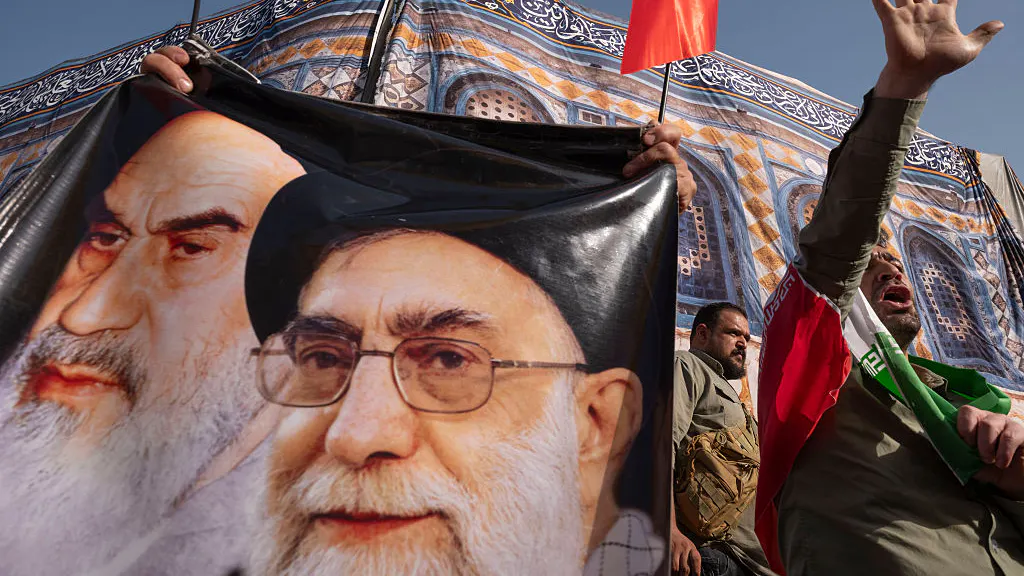In 1946, not too long after the end of World War II, Winston Churchill famously spoke of a “special relationship” between the United Kingdom and the United States — not only as a bond of history and language, but as a partnership grounded in shared principles and moral duty. That same sense of duty must guide us today as we confront the world’s leading state sponsor of terror: the clerical regime in Iran.
Historically, when facing totalitarian regimes, Britain, the US, and other Western powers have placed local dissidents at the center of any discussion about the future of oppressed nations. Yet Iran remains a glaring exception. For reasons that defy logic and morality, successive governments have marginalized the voices of Iranian democrats.
I am one of a growing number of Western politicians on both sides of the Atlantic who believe this should change and to this end, I will speak at the Free Iran Convention in Washington, D.C., on November 15, where more than one thousand Iranian experts, professionals, and academicians from all over the US, will present their vision for a free, democratic Iran.
For nearly half a century, Western policy toward Tehran has prioritized negotiation over accountability, assuming the clerical regime’s grip on power was unshakeable. Many believed Iran’s rulers would never meet the same fate as the Shah — at least not without chaos in the absence of a viable alternative.
That assumption was flawed from the outset. In the immediate aftermath of the 1979 revolution, the forces that helped topple the Shah — chief among them the People’s Mojahedin Organization of Iran (PMOI/MEK) — remained active, popular, and determined to oppose the theocracy that hijacked the revolution’s promise. The regime responded with brutal repression throughout the 1980s, culminating in the horrific 1988 massacre of around 30,000 political prisoners, most of them MEK members and supporters.
This atrocity was meant to eliminate organized opposition once and for all. It failed. The MEK survived and went on to form the backbone of the National Council of Resistance of Iran (NCRI), a broad coalition advocating regime change and democratic transition. Yet, tragically, the massacre convinced much of the international community that internal resistance had been extinguished — and that engagement with Tehran was the only realistic path forward.
Encouraged by that misperception (echoed by the regime’s protagonists and lobbyists), the regime deepened its repression at home and aggression abroad. It became the world’s leading state sponsor of terrorism, the nation with the highest per-capita rate of executions, and the only non-nuclear-armed state enriching uranium to 60% purity — just short of weapons-grade.
Ironically, by assuming the regime’s permanence, Western leaders helped create a situation where regime change has become essential for global security and human rights. Some progress is evident: the UK, France, and Germany recently triggered the re-imposition of UN sanctions following Washington’s return to a “maximum pressure” strategy.
But it remains unclear whether today’s policymakers grasp how profoundly their predecessors misread the regime’s vulnerability.
That misunderstanding can no longer be excused. Three nationwide uprisings — in 2018, 2019, and 2022 — have shown the Iranian people’s enduring commitment to democratic change. The unity and persistence of their demands reveal the strength of an organized opposition that, despite deadly crackdowns and decades of dismissal by Western analysts, continues to challenge the regime from within.
The Free Iran Convention in Washington builds on this momentum. It follows major gatherings in Brussels and across Europe, where Iranian youth and dissidents reaffirmed their readiness for a democratic transition. The movement’s supporters will call for a coherent Western policy — one that recognizes the NCRI as a credible alternative and supports the Iranian people’s right to determine their future.
Many of us in public life have already joined this cause. In parliaments on both sides of the Atlantic, lawmakers have endorsed resolutions recognizing the NCRI as a legitimate democratic alternative to the current regime and affirming the Iranian people’s right to establish a secular, non-nuclear republic. Maryam Rajavi, the President-elect of the NCRI, has articulated a ten-point plan as a roadmap for a future democratic republic of Iran. It has gained cross-party support of the majority of members of both the US House of Representatives and the UK House of Commons.
It is time for policymakers to act accordingly. The UK and European Union must designate the IRGC as a terrorist organization, and democratic governments should hold Tehran’s leaders accountable for crimes against humanity. Most importantly, the West must acknowledge the Iranian people’s right to overthrow tyranny and build a democratic future.
Appeasement has never delivered stability. Courage, clarity, and solidarity with the Iranian people just might.
* * *
Rt. Hon. John Bercow was the Speaker of the UK House of Commons from 2009 to 2019.
The views expressed in this piece are those of the author and do not necessarily represent those of The Daily Wire.

Continue reading this exclusive article and join the conversation, plus watch free videos on DW+
Already a member?

.png)
.png)

